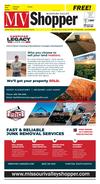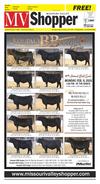032420_YKMV_A8.pdf







shop online at www.missourivalleyshopper.com
March 24 2020 • Page 8
Salute to Agriculture
Sustainability: What are the True
Impacts of Your Food Choices?
More people than ever before are
paying attention to how their food
is produced – and expecting it to be
“sustainably” produced. Whether
that’s eating less meat, or none at
all, buying cage-free eggs or cutting
back on dairy – many believe changing their diet in some way positively
impacts the environment. But does
it?
In this series, we’ll look at the
science-based pros and cons of
different food choices and farming
methods, and their impacts on sustainability – not only on the environment, but on animal well-being, our
health and our pocketbooks.
What is Sustainability?
It’s not just about being “green.”
For farmers and those involved
in food production, the principle
is known as the land ethic – to
leave things better than we found
them, according to Marty Matlock,
executive director of the University
of Arkansas Resiliency Center and
professor of ecological engineering.
“Sustainability is a general term
that describes the ability to keep doing what we’re doing. It’s not just an
environmental term,” he said. “Farmers want to sustain the quality of life
for their children, community health,
environmental health and soil
health. Conservation organizations
want to sustain critical habitats and
biodiversity around the world.” As
farmers around the world work to
grow more food to feed an exploding population, conservationists
and farmers champion sustainable
production so “we do not eat the
remaining wild places on earth.”
Dimensions of Sustainability
Dr. Matlock describes the key
dimensions of sustainability for
agriculture this way.
• Environmental: Intensification
of production to feed a growing
population while preserving critical
habitats for other life. Water resources are shifting rapidly, increasing
variability in rainfall and risks from
floods and droughts.
• Social: Global challenges including access to skilled labor, adequate
infrastructure in rural communities
(schools, medical facilities, technical
support), successional planning for
next-generation farmers and access
to tools that lessen the risks of farming (weather extremes, pest pressures, prices for crops, etc.)
• Climate Change: Sustainable
production from the land and sea
requires increasing resiliency of
production systems under increased
climate, economic, social and political uncertainty.
Sustainability also includes
factors as diverse as health and
wellness, animal welfare, treatment
of workers, food waste, packaging,
impact on local and indigenous
communities and more. In fact, The
Center for Food Integrity Optimizing Sustainability Framework, an
approach to help food companies
weigh the tradeoffs of sustainability
decisions, lists more than 250 attributes of sustainability and corporate
social responsibility.
Dr. Janice Swanson, an expert in
animal behavior and welfare and
a professor of animal science and
large animal clinical sciences at
Michigan State University, said sustainability is often viewed through
three perspectives – social, economic and environmental. Interactions
between these three dimensions are
complex.
“We are working to balance a
dynamic ecosystem that engages
human beings and animals in a
relationship. And even if you decide
to substitute ‘plant’ for ‘animal’ you
still have a complex system where
two living things are engaged in
balancing social, environmental and
economic impacts to be sustainable,” Dr. Swanson said.
She noted there are no easy
answers when it comes to producing food for consumers, whose
preferences continue to diversify
when it comes to how their food is
produced.
Sustainability Tradeoffs
Regardless of the dimension of
sustainability, there are consequences. Newton’s Third Law of Motion
says it best: for every action there is
an equal and opposite reaction.
In other words, while changing
one factor can
improve sustain-
ability, the change can have negative
impacts, too. So decisions by food
companies should not be taken
lightly.
“Changes in production practices
made because of pressure from
advocacy organizations that are not
science-based can result in reduced
choices at the grocery store and
can increase the negative impacts
of some food products,” Dr. Matlock
said.
One example is cage-free eggs
– eggs from hens who live in barns
where they can exhibit more natural
behaviors like foraging and taking
short flights, said Dr. Swanson. In
conventional systems, hens are
housed in cages within barns.
Driven by animal welfare concerns, some advocacy groups and
customers are demanding that eggs
are produced only in cage-free barns.
A handful of states now require that
only cage-free eggs be sold, and others have legislation on the table to
do the same. But are cage-free eggs
sustainable?
(Read more: What’s the Difference Between Cage-Free and Regular
Eggs?)
There are tradeoffs, Dr. Swanson
said, including more injuries to hens
from flying and hen-pecking, reduced
air quality from increased dust and
ammonia (which can impact employee and hen health). In addition,
more hens are required to produce
the same amount of cage-free eggs,
so more feed, water and land are
required. It costs farmers more to
produce cage-free eggs, and that results in higher prices for consumers.
Just the Facts
Farmers and companies in the
agriculture and food supply chain
are working to improve sustainability and being diligent about measuring, monitoring and communicating
improvements, Dr. Matlock said.
That’s good news.
As the world turns its focus to
protecting our earth, our health, our
animals – Best Food Facts is bringing you the scoop on sustainability.
We’ll equip you with the science
from experts so you can weigh the
pros and cons and make the best
choices in the grocery aisle for you
and your family.
Farming is more than
just a business it’s a way of Life
Travis Devine
Specialized protection for farmers.
• Farm • Auto • Home
605-665-2389
Thank You
Farmers!
Whitney Devine
Thank You Farmers!
The right job
is just one
click away.
www.missourivalleyshopper.com
In Print and Online!
Call 665-5884
Farming is the lifeblood of
the U.S. with Farming and
Agriculture providing the
backbone for our country.
Competitive Corn Bids
605-583-2258 • poet.com
Farmer’s deserve a lot
of Appreciation...
Today, Tomorrow,
and Every Day!
851 Washington St. • Scotland, SD
www.wilsontrailer.com • Hwy 81 N., Yankton, SD • 605-665-4441
“Your Single Source”
HVAC • Plumbing • Electrical
Kaiser Heating & Cooling
808 W. 23rd, Yankton • 665-2895

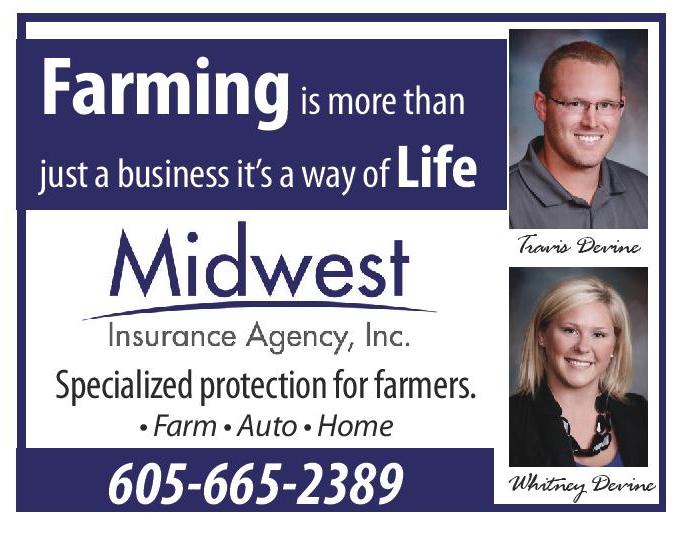
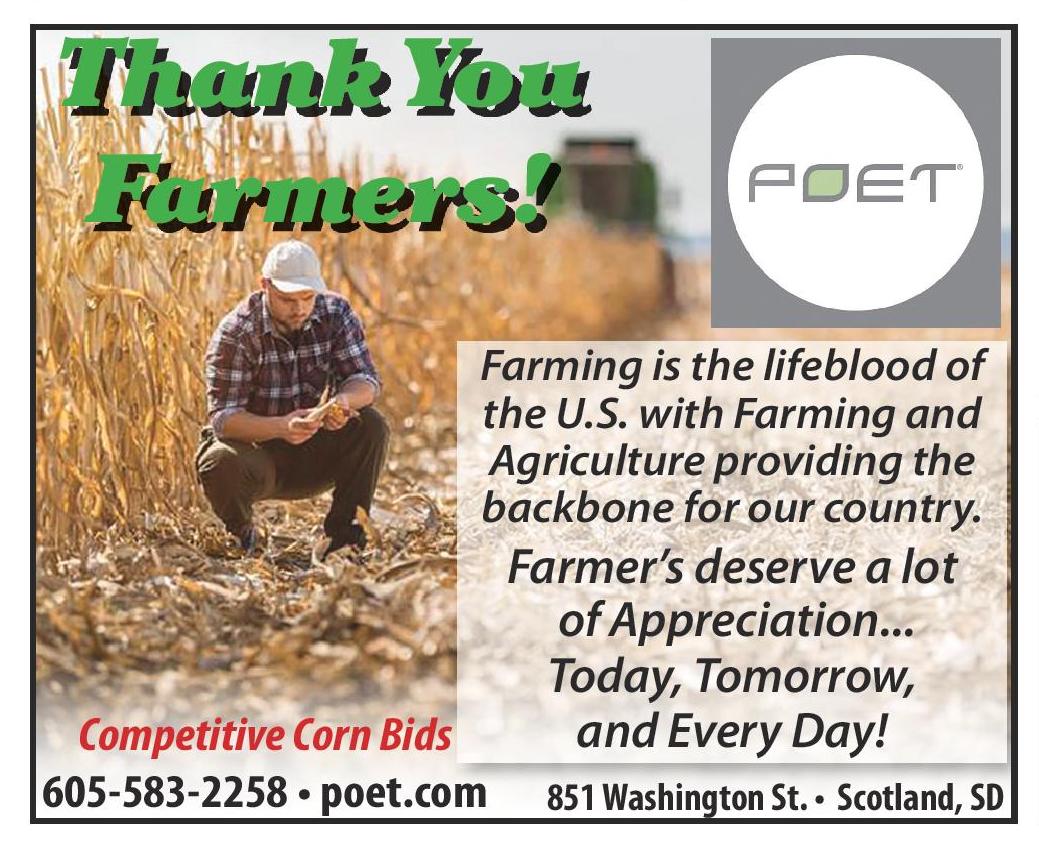







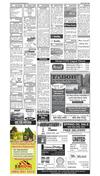
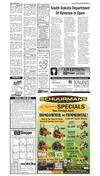
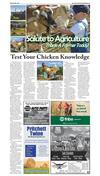
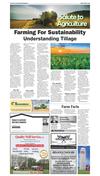
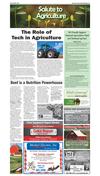
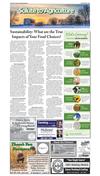
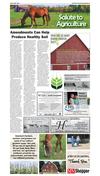


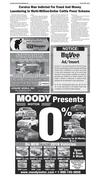
 Previous Page
Previous Page


